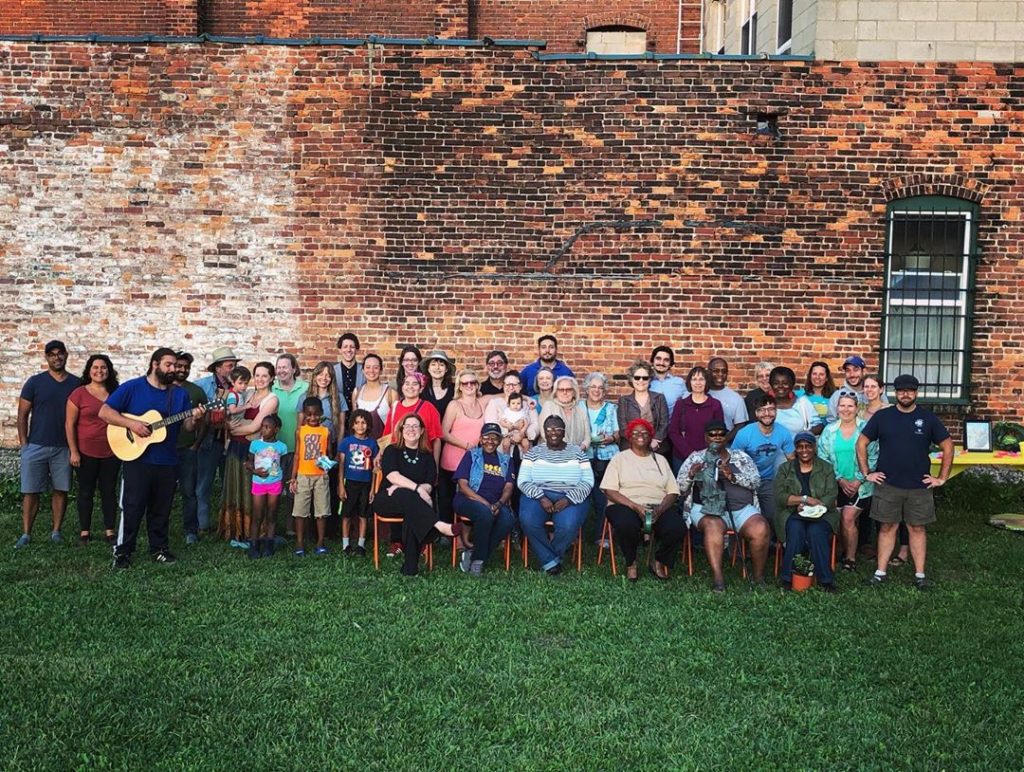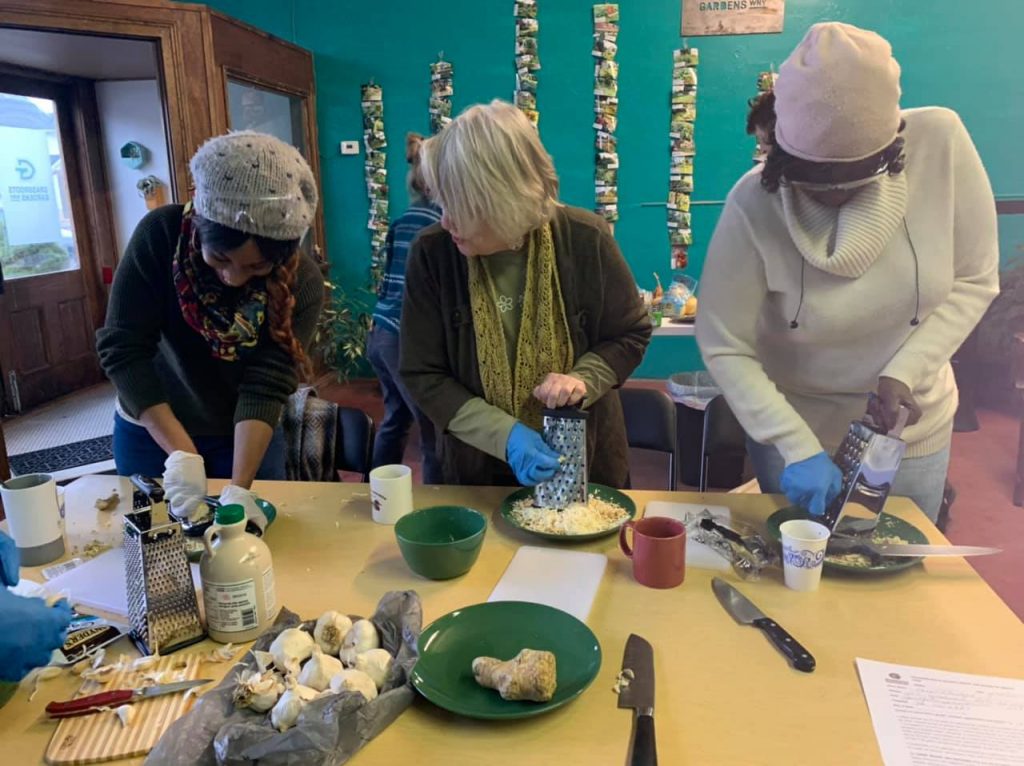Grantee Spotlights | April 14, 2021
Grassroots Gardens Spotlight
Transforming Communities Through Gardens

Since mid-March of last year, communities in upstate New York have disproportionately felt the impact of the pandemic. Even prior, nearly 2.2 million New Yorkers were living day to day without access to a sufficient quantity of affordable, nutritious food. Now, amid a time of crisis, food insecurity is affecting the health and well-being of individuals in Western New York more than ever.
In an effort to redefine local food systems and increase low-income residents’ access to healthy food, Grassroots Gardens of Western New York (GGWNY) is developing more than 100 community gardens and growing 35,000 pounds of produce in Buffalo and Niagara Falls.
The regional nonprofit recently received a $45,000 grant from the Foundation to continue its Community Garden Program which will increase access to fresh produce to nearly 2,000 low-income, food-insecure neighborhoods, as well as develop, plant, and maintain 113 community gardens, distribute produce from community gardens to food banks and pantries, host free gardening workshops, and provide food preservation workshops.
Historically, GGWNY and its volunteers cultivate community gardens and produce organic produce that are freely harvested and consumed within the communities where the gardens are located, many of which are food deserts. Buffalo’s East Side, for one, is considered a food desert in need of such access.
Food deserts, food insecurity, and COVID-19 have proven to have a deadly impact on many individuals living in urban and rural communities. Coupled with the pandemic induced high unemployment rates, there is an anticipated uptick in need from food-challenged communities.
Following a pandemic that has taken far too much, Western New Yorkers deserve more community-based access to sustainable, nutritious, and affordable food.

